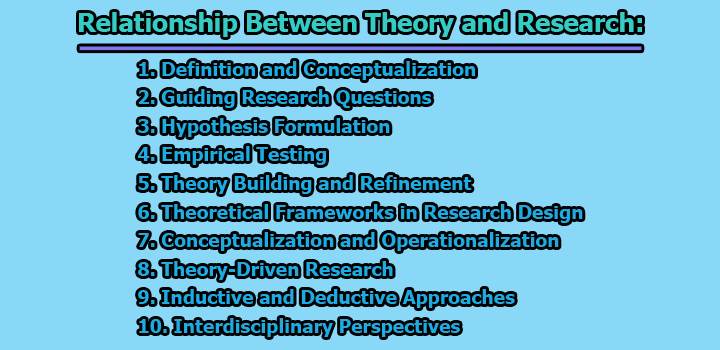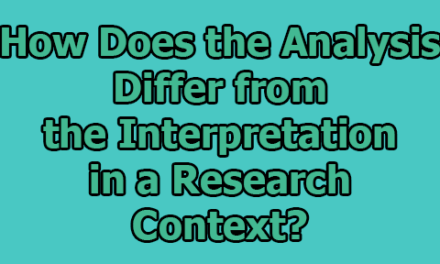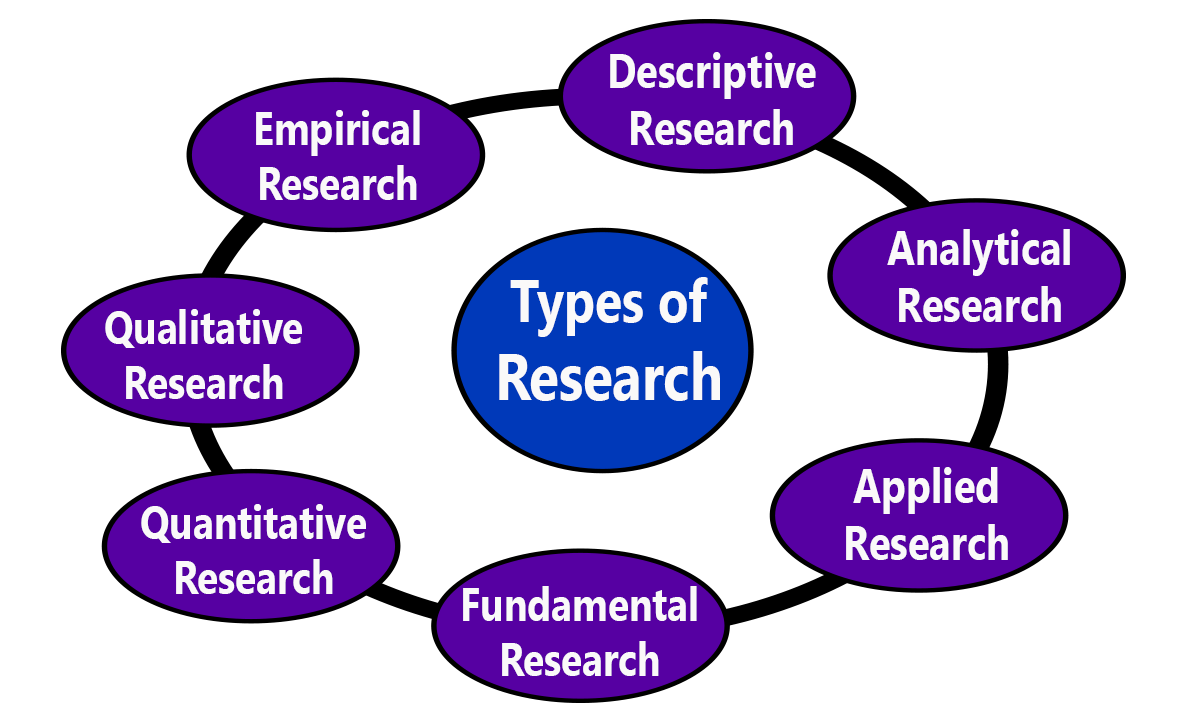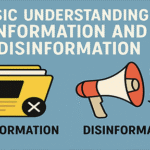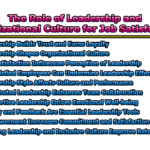Relationship Between Theory and Research:
The relationship between theory and research is fundamental in the field of academia and various disciplines, providing a framework for understanding phenomena, generating knowledge, and advancing our understanding of the world. This intricate connection between theory and research is essential for the development and evolution of scientific knowledge. In this article, we will delve into the multifaceted relationship between theory and research, elucidating their interdependence and the roles they play in shaping the landscape of academic inquiry.
1. Definition and Conceptualization:
Theory: A theory serves as a systematic and organized set of principles or concepts designed to explain observed phenomena (Smith, 2010). It represents an abstraction that aids researchers in making sense of the complexity of the world by providing a structured framework for understanding and interpreting empirical evidence (Johnson, 2015).
Research: Research, as defined by Leedy and Ormrod (2019), is the systematic and rigorous investigation of phenomena to expand knowledge or validate existing theories. It involves the collection and analysis of data to test hypotheses, explore relationships, and contribute to the overall body of knowledge within a specific field.
Interconnection: The relationship between theory and research is evident in how theory guides the formulation of research questions. The process often begins with theoretical conceptualization, where researchers draw on existing theories to develop questions that guide the exploration of relationships, patterns, and underlying principles (Creswell, 2014).
2. Guiding Research Questions:
Theory: The development of a theory often commences with posing questions about the nature of a phenomenon. These questions serve as the foundation for theoretical exploration and provide a roadmap for understanding the intricacies of the subject matter (Babbie, 2016).
Research: Research questions, according to Creswell and Creswell (2017), are central to the research process. These questions emerge from the theoretical framework and guide the formulation of hypotheses, ultimately directing the design and execution of studies to gather relevant data.
Interconnection: The interdependence between theory and research is evident in how theoretical questions inspire empirical inquiry. As researchers embark on investigations, they leverage theoretical foundations to articulate research questions that drive the study’s objectives and methods (Neuman, 2014).
3. Hypothesis Formulation:
Theory: A theory provides a foundation for hypothesis formulation, suggesting potential relationships between variables and offering predictions about how these relationships may manifest in empirical observations (Kerlinger, 1979).
Research: Hypotheses, as articulated by Fraenkel and Wallen (2006), are derived from theoretical frameworks and serve as testable propositions. Research is then designed to collect data that either supports or refutes these hypotheses, contributing to the validation or refinement of the underlying theory.
Interconnection: The relationship between theory and research is dynamic, with hypotheses serving as the bridge between abstract theoretical concepts and concrete empirical observations (Trochim, 2006). Through empirical testing, researchers contribute to the iterative process of theory building and refinement.
4. Empirical Testing:
Theory: Empirical testing is a crucial phase in theory development, involving subjecting the propositions of a theory to real-world observations and experiments (Bryman, 2016). This process is fundamental for establishing the validity and reliability of a theory’s predictions.
Research: Empirical research, as described by Creswell and Creswell (2017), is the systematic collection and analysis of data to draw conclusions about the phenomena under investigation. Through experimentation, observation, or survey, researchers seek to provide empirical support or modification to the existing theoretical framework.
Interconnection: The dynamic interplay between theory and research is evident in the empirical testing phase. Researchers, following the blueprint provided by the theory, gather data that either substantiates or challenges the theoretical predictions, contributing to the ongoing development and refinement of the theory (Yin, 2018).
5. Theory Building and Refinement:
Theory: As research findings accumulate, theories may be built upon or refined. New insights from empirical studies may necessitate adjustments to existing theories, leading to a more nuanced and accurate understanding of the phenomenon (Strauss & Corbin, 1998).
Research: Research findings, when consistent and replicable, contribute to the process of theory building. The iterative nature of scientific inquiry, as highlighted by Glaser and Strauss (2017), involves the continuous refinement of theories based on accumulated empirical evidence.
Interconnection: The reciprocal relationship between theory and research is evident as theory-building informs subsequent research questions. The refinement of theories is not only a product of empirical findings but also a guide for future research endeavors, creating a cyclical and evolving process (Charmaz, 2006).
6. Theoretical Frameworks in Research Design:
Theory: A theoretical framework guides the research design by shaping the selection of variables, methods, and measures (Creswell, 2014). It provides a structure that ensures coherence and relevance in the research process.
Research: Research design, as outlined by Leedy and Ormrod (2019), is influenced by the theoretical framework, ensuring that the study aligns with the theoretical underpinnings. A well-designed study considers the theoretical concepts, allowing for the systematic collection of data and meaningful analysis.
Interconnection: The integration of theoretical frameworks into research design underscores the interdependence between theory and research. The chosen theory dictates not only the research questions but also the methodological approach, contributing to the rigor and validity of the research (Creswell, 2014).
7. Conceptualization and Operationalization:
Theory: Conceptualization involves defining abstract concepts within a theory, providing a clear understanding of the phenomena under investigation (Maxwell, 2013). Operationalization, as highlighted by Babbie (2016), is the process of translating these conceptual definitions into measurable variables or indicators that can be observed and analyzed.
Research: In empirical research, conceptualization and operationalization are critical steps (Trochim, 2006). Researchers must define and measure variables in a way that aligns with the theoretical framework, ensuring that the study accurately reflects the abstract concepts within the theory.
Interconnection: The relationship between theory and research is evident in how conceptualization and operationalization bridge the gap between abstract ideas and concrete measurements. The theoretical concepts, once operationalized, guide the collection of data, ensuring that the study captures the essence of the theory in observable and measurable terms (Bryman, 2016).
8. Theory-Driven Research:
Theory: Theory-driven research emphasizes the importance of existing theories in guiding the research process (Creswell & Creswell, 2017). It starts with a clear theoretical framework and aims to contribute directly to the advancement or validation of the underlying theory.
Research: In theory-driven research, the chosen theory plays a central role in shaping the research questions, hypotheses, and methodology (Babbie, 2016). This approach ensures that the study is not merely exploratory but is explicitly designed to test or extend the existing theoretical framework.
Interconnection: The interdependence between theory and research is pronounced in theory-driven research. The theory informs every aspect of the research process, guiding the selection of variables, the formulation of hypotheses, and the interpretation of findings. The research, in turn, contributes valuable empirical insights that may lead to the refinement or expansion of the underlying theory (Charmaz, 2006).
9. Inductive and Deductive Approaches:
Theory: The relationship between theory and research is often described in terms of inductive and deductive approaches. Inductive reasoning involves deriving general principles from specific observations, while deductive reasoning starts with general principles and tests them through specific observations (Trochim, 2006).
Research: Research methods can be either inductive or deductive, depending on whether they aim to build theories from specific observations or test existing theories through empirical data (Creswell & Creswell, 2017). Both approaches are essential for a comprehensive understanding of the relationship between theory and research.
Interconnection: The interplay between inductive and deductive approaches exemplifies the reciprocal nature of theory and research. Inductive approaches contribute to theory building by deriving generalizations from observed patterns, while deductive approaches test and refine existing theories through empirical verification (Maxwell, 2013). This duality enriches the scientific landscape by fostering both the generation of new knowledge and the validation of established theories.
10. Interdisciplinary Perspectives:
Theory: Theories can transcend disciplinary boundaries, offering frameworks that are applicable across various fields (Kuhn, 1970). Interdisciplinary theories provide a common language for researchers from different disciplines to collaborate and share insights, fostering a holistic understanding of complex phenomena.
Research: Interdisciplinary research often involves the integration of theories from multiple disciplines (Repko, 2012). This collaboration enhances the richness of research endeavors, allowing for a more comprehensive and nuanced understanding of complex phenomena that may not be fully captured within the confines of a single discipline.
Interconnection: The relationship between theory and research extends beyond the boundaries of individual disciplines through interdisciplinary perspectives. As researchers from diverse fields come together, they bring with them unique theoretical frameworks that, when integrated, contribute to a more holistic and robust understanding of complex issues (Klein, 1996). This interdisciplinary collaboration exemplifies how theories from one domain can enrich and inform research in another, showcasing the interconnected and dynamic nature of theory and research in the broader academic landscape.
In conclusion, the relationship between theory and research is symbiotic, with each informing and shaping the other. Theoretical frameworks guide research questions, hypothesis formulation, and research design, providing a roadmap for empirical investigations. Simultaneously, empirical research contributes to the development, validation, or refinement of theories, fostering a continuous cycle of knowledge generation and refinement. This dynamic interplay between theory and research is at the heart of scientific inquiry, driving the advancement of knowledge across diverse academic disciplines.
References:
- Babbie, E. R. (2016). The Practice of Social Research. Cengage Learning.
- Bryman, A. (2016). Social Research Methods. Oxford University Press.
- Charmaz, K. (2006). Constructing Grounded Theory: A Practical Guide Through Qualitative Analysis. SAGE Publications.
- Creswell, J. W. (2014). Research Design: Qualitative, Quantitative, and Mixed Methods Approaches. SAGE Publications.
- Creswell, J. W., & Creswell, J. D. (2017). Research Design: Qualitative, Quantitative, and Mixed Methods Approaches. SAGE Publications.
- Fraenkel, J. R., & Wallen, N. E. (2006). How to Design and Evaluate Research in Education. McGraw-Hill.
- Glaser, B. G., & Strauss, A. L. (2017). Discovery of Grounded Theory: Strategies for Qualitative Research. Routledge.
- Johnson, B. (2015). A Schematic View of Basic Types of Research: The Research Onion. In R. A. Swanson, & E. F. Holton III (Eds.), Research in Organizations: Foundations and Methods of Inquiry (pp. 3–30). Berrett-Koehler Publishers.
- Kerlinger, F. N. (1979). Behavioral Research: A Conceptual Approach. Holt, Rinehart and Winston.
- Klein, J. T. (1996). Crossing Boundaries: Knowledge, Disciplinarities, and Interdisciplinarities. University of Virginia Press.
- Kuhn, T. S. (1970). The Structure of Scientific Revolutions. University of Chicago Press.
- Leedy, P. D., & Ormrod, J. E. (2019). Practical Research: Planning and Design. Pearson.
- Maxwell, J. A. (2013). Qualitative Research Design: An Interactive Approach. SAGE Publications.
- Neuman, W. L. (2014). Social Research Methods: Qualitative and Quantitative Approaches. Pearson.
- Repko, A. F. (2012). Interdisciplinary Research: Process and Theory. SAGE Publications.
- Smith, M. K. (2010). Curriculum Theory and Practice. The Encyclopedia of Informal Education. Retrieved from http://infed.org/mobi/curriculum-theory-and-practice/
- Strauss, A. L., & Corbin, J. M. (1998). Basics of Qualitative Research: Techniques and Procedures for Developing Grounded Theory. SAGE Publications.
- Trochim, W. M. (2006). The Research Methods Knowledge Base (3rd ed.). Atomic Dog.
- Yin, R. K. (2018). Case Study Research and Applications: Design and Methods. SAGE Publications.

Assistant Teacher at Zinzira Pir Mohammad Pilot School and College

